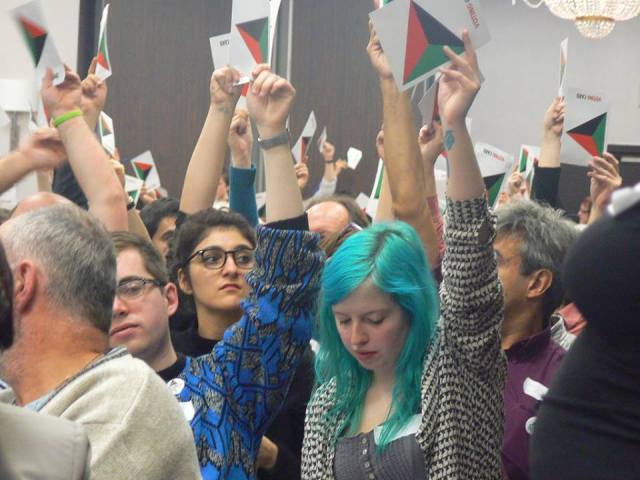The election of Jeremy Corbyn as leader of the Labour Party yesterday was possibly the most important political event during my lifetime – certainly in terms of British politics. For the left, everything has changed; old analyses have proved wanting, old certainties false, old strategies redundant.
When I first joined the Labour Party in 1962 I was told that it was ‘a broad church’; indeed, in my local party I found socialists (for that’s what everyone unblushingly called themselves then) ranging from marxists of various stripes to the former Managing Director of Burma Oil. With the exception of NATO and nuclear weapons, on which the party was, as now, divided, virtually every party member I remember from those days would today have found themselves in agreement with virtually all of JC’s policy positions.
While Tariq Ali’s assertion that Jeremy is the most left wing Labour leader ever may well be true it is also certainly true that over the past thirty years or so the party has drifted, inexorably it seemed, to the right. Under Blair, of course, that drift was consciously accelerated as the Blairites attempted to cut the party’s links to its class roots and transform it into simply an election machine for their particular brand of neo-liberalism with a human face. Under Blair, consistent traditional Labour right-wingers like Roy Hattersley found themselves criticising Labour from the left, democracy and effective political debate were systematically bled from the party and it became more and more like the husk of a once living political entity.
After 1997, while Labour continued to win elections it steadily lost votes at each one. By the time that it lost the 2010 election Labour had lost 5 million votes and most of those were from its working class base. Labour also lost members – its membership more than halved between 1997 and 2010 – in particular after Blair’s decision to join the USA in the invasion of Iraq there was a haemorrhage of appalled members. As Labour moved to the right a growing space opened to its left, and it seemed that it was in this space that the task of the refounding a broad based and popular democratic socialist party would have to be begun.
Two months ago – it feels like half a lifetime, so dramatically have things changed – I wrote that a period like now, when, in comparison to ‘normal times’ a long underlying crisis emerges, provides an opening for socialists to explain our ideas to a more receptive audience but that “in order to seize the time one needs a party, or at least a popular movement, or at least a critical mass of some thousands of activists who can provide the energy, physical resources and imagination needed to mobilise that movement and build (or rebuild) that party. So what grouping on the left could provide such a critical mass? The Green Party could do it but won’t. Left Unity would do it but can’t.The various comic opera bolshevik sects don’t even want to. But perhaps – just perhaps – the inchoate movement coalescing around Jeremy Corbyn might.”
So yesterday’s vote, showing that Jeremy had a commanding lead in all three of the party constituencies demonstrated two things; first that, those of us who had long ago given up on the possibility of the Labour Party being a vehicle of popular change have been proved wrong and second that the impetus to revivify the party has not come from the left within the party or even the ‘traditional’ labour movement, but from the streets and a new agency – the new young dispossessed, the ‘precariat’ if you will. It is Generation Rent, it is the generation of Occupy and UK Uncut. Due to the unique (and previously disempowering) structure of the British labour movement and the serendipitous accident that led to a modest but inspiring socialist candidate getting onto the Labour leadership ballot, this new force, rather than rejecting the Labour Party has stormed it, brushing aside the barriers erected by the apparatchiks and ignoring the received wisdom of the Great and the Good and the sneers of the commentariat. In the doing so, it has dragged along in its wake most of the those in the ‘old new left’ whose capability for independent and critical thinking have not been totally ossified by sectarianism and given the existing left in the party a huge transfusion of hope and confidence.
I went on the refugee solidarity march yesterday and marvelled at its diversity, its youth and its positivity. This was Generation Jezza. When, in yesterday’s sunshine, the huge crowd in Parliament Square responded with a great wave of cheers and applause at the appearance of an old bloke with a white beard on the stage in front of them (no, not this old bloke with a white beard, that one) I was reminded of those two lines of Wordsworth’s from the Prelude:
Bliss was it in the dawn to be alive But to be young was very heaven









